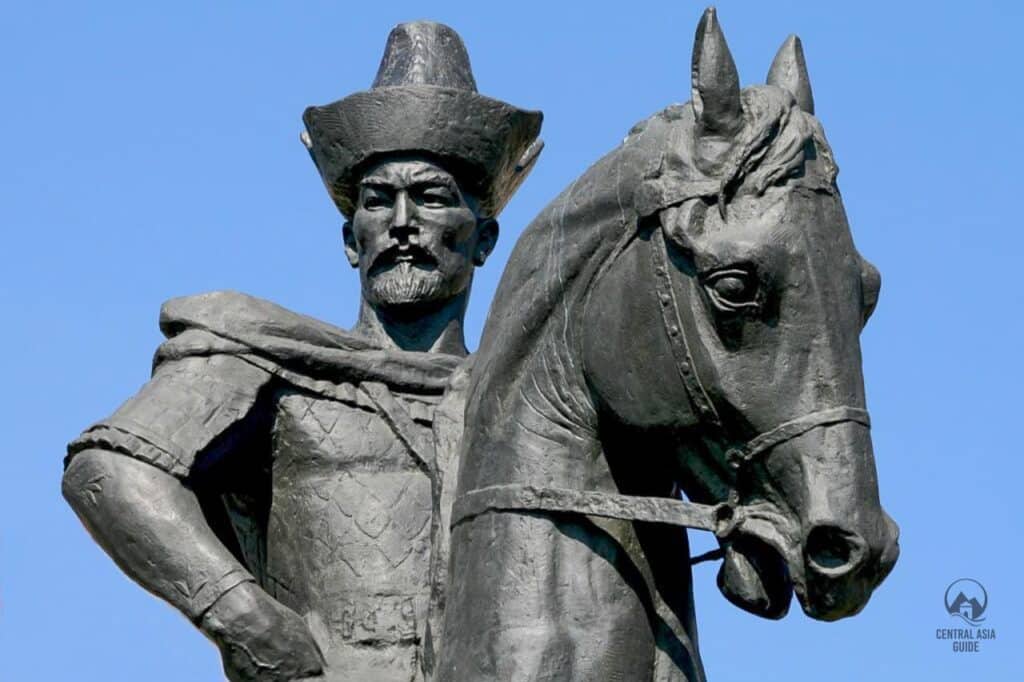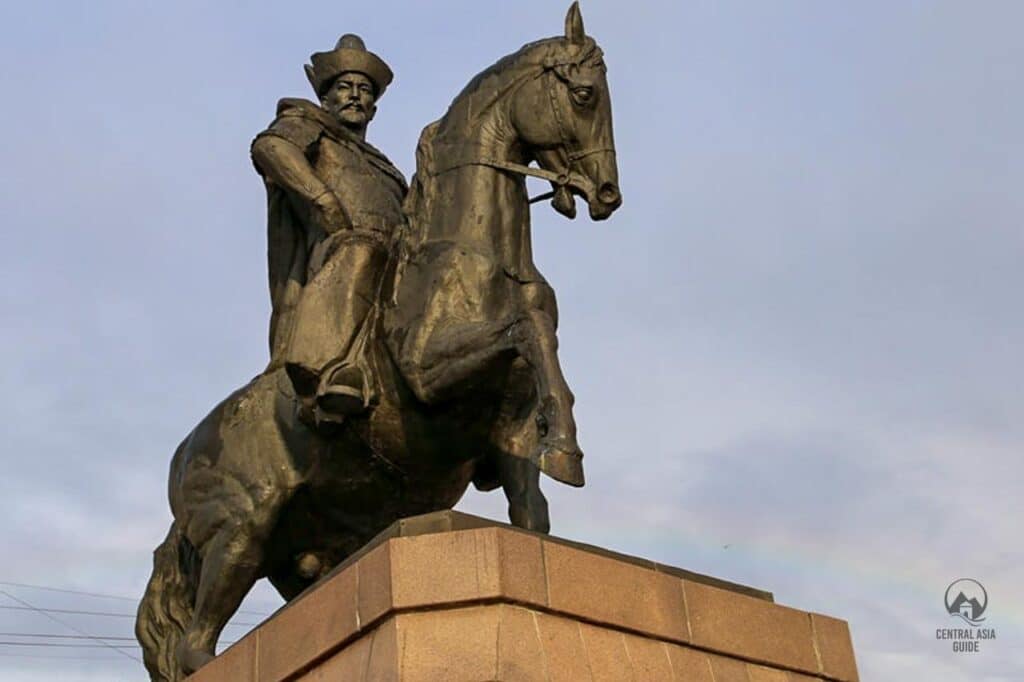Kenesary Kasymov
Kenesary bin Qasym (Kasymov) (1802-1847)
Kenesary bin Qasym (or Kenesary Qasymuly or Kenesary Khan) was the last Kazakh Khan and last ruler of the Kazakh Khanate and the grandson of Ablai Khan. Kenesary was the first Kazakh nationalist who raised the people of the steppe in their fight for independence. He fought for his country’s freedom, the reinstating of the Khanate, and the re-engagement of the beys (Turkic chieftains).


Childhood of Kenesary Kasymov
Born in 1802 in the Akmola region, Kenesary was the youngest child of six children in the family of Kasym-tore and his eldest wife Aikumis, the daughter of the Dzungarian khan Galdan Tseren. On the maternal side, Kenesary Kasymov came from the Choros dynasty, and on the paternal side – from the Chingizids. From a young age Kenesary studied military skills, management skills and showed remarkable leadership and organizational skills. After Uali’s death in 1821, Kasym became the main contender for the Khan’s title.
Struggle and Death of last Khan of Kazakhstan
Kenesary was elected as Khan in 1841, in the rebel-controlled Torgay steppe. He initiated economic reforms and attempted to settle relations with the Russians peacefully. This failed, and an army was prepared to march against him. In his attempts to mobilize the entire Kazakh population against this army, he resorted to punitive action against auls (villages) that were unwilling to submit themselves to his vision. This lost him his social base and he was forced to withdraw onto a peninsula in the Ili delta, which was hard to capture.
Following the unconditional surrender by the Middle Horde to Russian authority, he tried to continue his struggle from a Kyrgyz mountain range. In the middle of the 19th century, the Kazakh Khanate fell under the full control of the Russian Empire. Eventually, together with 32 of his sultans, Kenesary Kasymov was taken prisoner and executed.
Page updated 20.1.2022